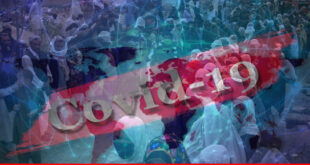Dr. Ishrat Husain announced the establishment of the Centre for Excellence in Islamic Finance at IBA, with the objective of bridging the gap between trained human resource and industry’s growing requirement.
The Centre will broadly perform in the areas such as offering degree programs in Islamic Finance, Conduct Research and case studies for enhancing and disseminating knowledge in Islamic Finance; offer short term open and customized executive courses for the professionals working in the industry; collaborate with international players to assure introduction of best practices, governance and management; provide a platform for debate, discussion and discourse on the current issues, the future evolution of Islamic Finance.
In line with its objectives, the Centre is in advance stages of establishing international collaborations to make it a truly world class Centre. The founding members of Board of Management (BoM) of Centre for Excellence in Islamic Finance include, Dr. Ishrat Husain, Chairman CEIF, Mr. Irfan Siddiqui, CEO Meezan Bank Ltd., Mr. Hassan Bilgrami, CEO BankIslami Ltd, Mr. Shafqaat Ahmed, CEO Al Barakah Bank Ltd., Mr. Junaid Ahmed, CEO Dubai Islamic Bank, Dr. Imran Usmani, Shari’ah Advsior, Meezan Bank Ltd., Mr. Samar Hasnain, Executive Director, Development Finance Group, SBP and Mr. Ahmed Ali Siddiqui, Founding Director of CEIF.
Centre for Excellence in Islamic Finance (CEIF), won the competitive award under a challenge competition organized by State Bank of Pakistan (SBP), which is being financed under a program by DIFD. it may be noted that Center for Excellence in Islamic Finance won the competitive award under a challenge competition organized by SBP, which is being financed under a program by DIFD.
In fact, the State Bank of Pakistan (SBP) after a threadbare scanning of a long list of universities from across the country has short listed three top universities for establishing Centre of Excellence in Islamic Finance, which include IBA Karachi, LUMS Lahore and IMS Peshawar.
According to Dr. Ishrat Husain, who in facts carries the credit of initiating the concept of Islamic finance while he was the Governor of State Bank of Pakistan, there is an acute shortage of skilled human resources in Islamic finance while this industry is on a speedy growth in Pakistan.
At the moment majority of the people attached with Islamic banking or Islamic finance hail from conventional banking. The Islamic finance industry is currently facing the problem of skilled human resource as those who know technical side of the banking are unaware of the soul of Islamic finance, while those well versed in Islamic values are unaware of technical side.
In order to bridge the gap this Center of Excellence has been established, which as the first priority will provide training to the existing banking staff for basic norms of Islamic finance both in terms of concept as well as technical side.
Dr. Ishrat was of the view that primarily the objective of the Islamic banking is to fight against poverty and generate economic opportunities with a view of do away with a huge problem of unemployment. The Islamic banking should not run after the people who have rich financial resources, in fact the Islamic finance should focus to provide financial services to low cost housing schemes, SME sector, promote microfinance and small industries, which are unable to come to the economy of the scale due to financial constraints. In fact this would not be an easy task and require devotees to work hard for poverty alleviation from the society.
Islamic finance: Global perspective
- Around 700 + Islamic financial institutions.
- Total size ~ US $1.7 trillion (E&Y World Islamic Banking Report 2013-14).
- Estimated size to reach US$5.0 trillion by 2020.
- 250+ Shariah compliant mutual funds with $ 300bn funds
- Around 2000 international Islamic Sukuk issued till date.
- 133 + Takaful companies; > US$ 8.8 billion in contribution.
- Over 45+ Shariah & Accounting Standards for Islamic financial institutions (by AAOIFI)
- Establishment of Islamic indices (Dow Jones, FTSE, KMI-30 etc)
- Global IF Hubs (London, Bahrain, Malaysia, UAE).
- S&P, Dow Jones debuts multi-asset Islamic Shariah complaint indices.
- Longer term Sukuk acceptance:
- Recent trend shows a gradual shift towards longer term paper.
- Two entities in Malaysia revealed their 30 year Sukuk plans.
IMF endorses Islamic finance:
- Safer than conventional finance.
- IMF reports noted that because Islamic banking forbids pure monetary speculation and stresses that deals should be based by real economic activity it could pose less risk than conventional banking.
- IMF reports noted that risk sharing characteristics Islamic financial products can facilitate access to finance by SME.
- More than 75 countries have Islamic Banking Institutions.
- Approx. 45 Muslim countries including Kuwait, Dubai, Saudi Arabia, Iran, Malaysia, Brunei and Pakistan.
- Approx 30 non-Muslim countries including USA, UK, Canada, Switzerland, Sri Lanka, South Africa and Australia.
- New players include Oman, Tanzania, Djibouti, Singapore, Germany, Hong Kong.
 PAGE Blog Business Weekly Magazine
PAGE Blog Business Weekly Magazine

